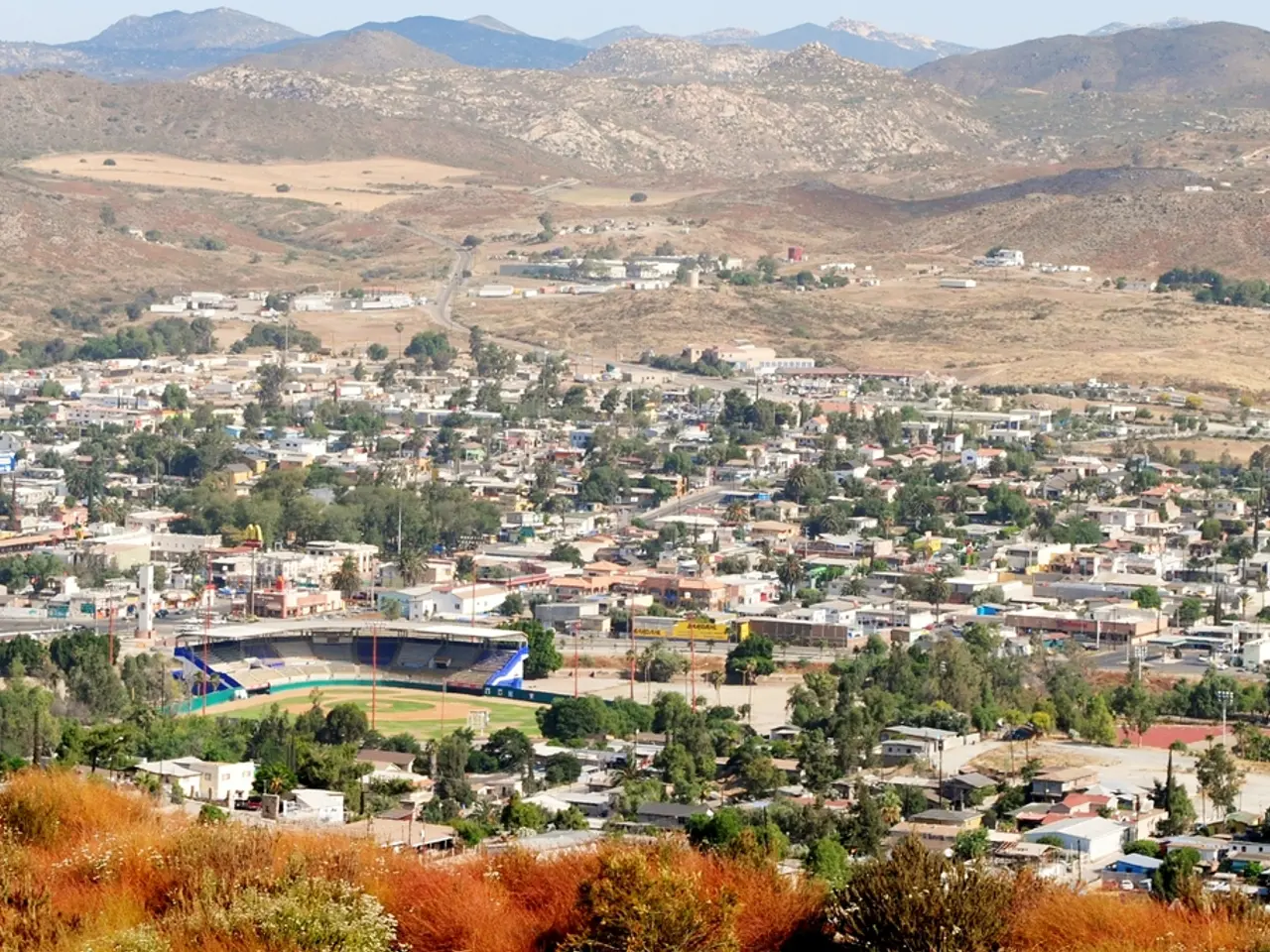Tehran shuts down public restrooms in response to water shortage crisis - Water shortage leads to closure of public washrooms in Tehran
In the heart of Iran, the capital city of Tehran, and its surrounding areas, are grappling with a critical water crisis that has been ongoing for several weeks. The situation, exacerbated by a combination of factors such as prolonged drought, plummeting rainfall, soaring temperatures, over-extraction from aquifers, and inefficient water management, has left reservoirs at about 14% capacity and led to widespread water rationing in over 40 cities, including Tehran[1].
The crisis has taken a toll on the city's residents, who are experiencing frequent power outages lasting for hours, making the already scorching temperatures between 40 and 50 degrees Celsius unbearable, and rendering the use of air conditioning impossible[2]. To cope with the water shortage, the government has initiated emergency water transfer projects and aggressive water conservation campaigns, but the nationwide scale of the problem remains daunting[1][2].
One of the most visible impacts of the water crisis in Tehran is the closure of public toilets. Reports from news portals Didehban-Iran and Shargh suggest that even toilets are being shut down due to the water shortage[3]. The Tehran city administration has not yet commented on the reports, but eyewitnesses have confirmed the closures, particularly near and inside metro stations[4].
The closure of public toilets is part of the government's water-saving measures, aimed at conserving every drop of water possible. However, the lack of this basic necessity has led to criticism from residents, with many taking to social media to express their concerns about the difficult living conditions[5].
President Masud Pezeshkian has described the crisis as a "natural disaster" that could worsen in the next few weeks, and he has suggested relocating the capital to prevent potential chaos[1]. Other officials, including the head of Iran’s Water and Sewage Company, have issued warnings that unless urgent measures are taken, the crisis will worsen irreversibly[2][3].
In an effort to save power and water, serious considerations are being made to reduce the workweek from five to four days or to impose a one-week forced closure of the capital[6]. As the situation in Tehran worsens daily, it is clear that drastic measures will be necessary to address this pressing national emergency.
References:
[1] BBC News. (2021, July 1). Iran's water crisis: How bad is it? BBC. https://www.bbc.com/news/world-middle-east-57672801
[2] Al Jazeera. (2021, June 22). Iran's water crisis: A looming catastrophe. Al Jazeera. https://www.aljazeera.com/news/2021/6/22/iran-s-water-crisis-a-looming-catastrophe
[3] Radio Farda. (2021, June 26). Iran Water Crisis: Head of Water and Sewage Company Warns of Worsening Drought. Radio Farda. https://en.radiofarda.com/a/iran-water-crisis-head-of-water-and-sewage-company-warns-of-worsening-drought/31399689.html
[4] Iran International. (2021, July 1). Iran's water crisis: Protests, anger and despair in Tehran. Iran International. https://iranintl.com/top-stories/irans-water-crisis-protests-anger-and-despair-in-tehran-53729
[5] Didehban-Iran. (2021, June 27). تحریم استفاده از آب در تهران بیشتر میشود. Didehban-Iran. https://didehban.ir/news/366462
[6] Shargh. (2021, July 1). جلوگیری از استفاده از آب در تهران با ایجاد این امکان آماده میشود. Shargh. https://www.sharghdaily.ir/news/1281434
- The European Union and its Member States expressed concern over the ongoing water crisis in Tehran, Iran, and are calling for immediate policy-and-legislation actions aimed at addressing climate-change-induced environmental-science issues in the region.
- Amidst the critical water crisis, Science and Politics magazines opined that the situation in Tehran serves as a grim reminder of the global need to prioritize water management and conservation, not just in the Middle East, but in general-news headlines worldwide.
- Following the devastating water crisis in Tehran, experts from the European Union's environmental-science departments are mobilizing resources to support the city's recovery efforts, collaborating with Iranian policymakers and offering expertise in efficient water management practices.






